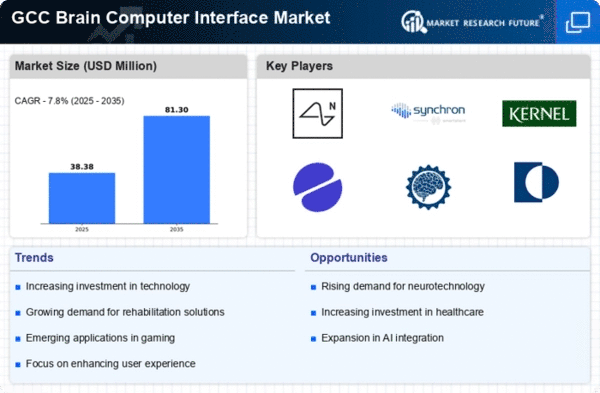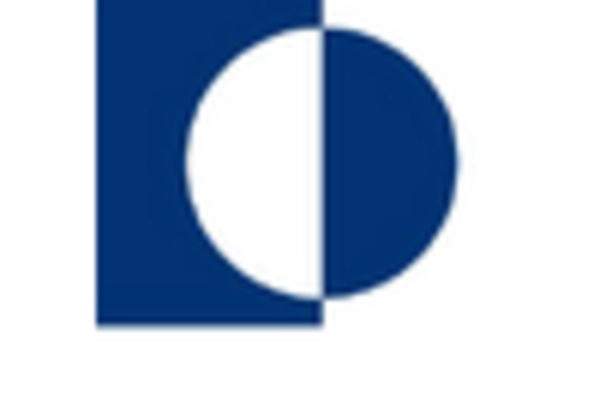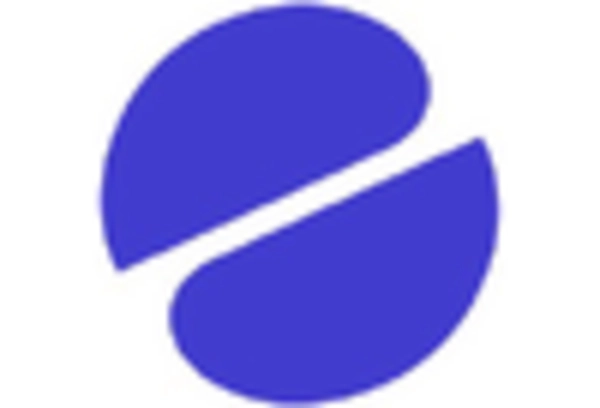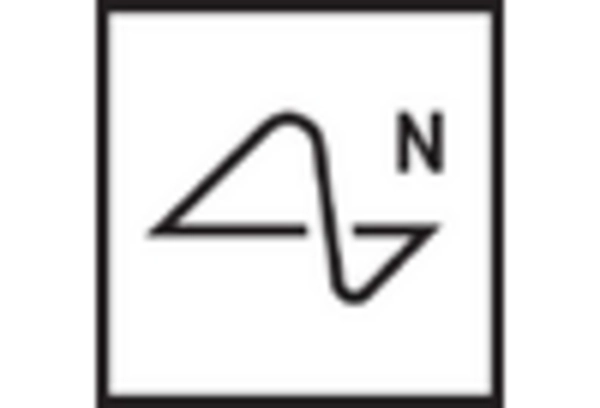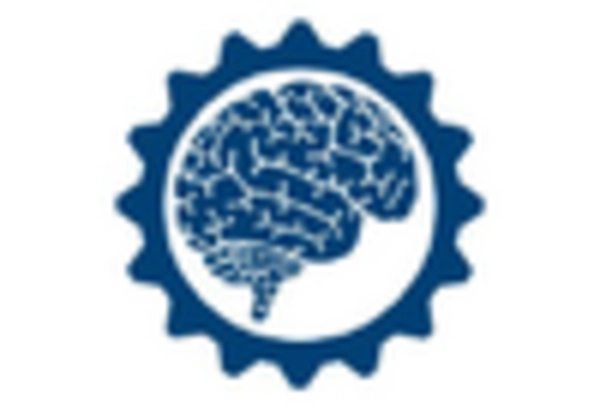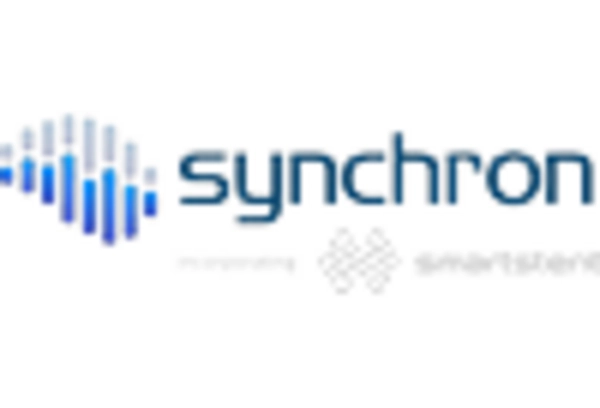Rising Demand for Neurotechnology
There is a notable surge in demand for neurotechnology solutions across various sectors in the GCC. This demand is primarily driven by the increasing prevalence of neurological disorders, which has prompted healthcare providers to seek innovative treatment options. According to recent estimates, the GCC region is projected to witness a growth rate of approximately 15% annually in the neurotechnology sector. This growth is further fueled by advancements in artificial intelligence and machine learning, which enhance the capabilities of brain computer interfaces. As a result, the brain computer-interface market is likely to expand significantly, attracting investments and fostering collaborations among technology firms and healthcare institutions.
Growing Awareness of Mental Health
There is a shift in focus towards mental health, driven by increasing awareness and acceptance of mental health issues in the GCC. As societies become more open to discussing mental health, there is a growing demand for technologies that can assist in diagnosis and treatment. The market for mental health applications utilizing brain computer interfaces is projected to grow by approximately 12% annually. This trend indicates a potential for innovative solutions that can enhance mental well-being, such as real-time monitoring and personalized therapy. As a result, the brain computer-interface market is likely to expand its offerings to cater to this emerging need, thereby enhancing its relevance in the healthcare sector.
Increased Investment in Research and Development
Investment in research and development (R&D) within the brain computer-interface market is gaining momentum in the GCC. Governments and private entities are recognizing the potential of brain-computer technologies to revolutionize healthcare and enhance cognitive capabilities. For instance, the GCC countries have allocated substantial budgets for R&D initiatives, with some estimates suggesting an increase of over 20% in funding for neurotechnology projects. This influx of capital is expected to accelerate innovation, leading to the development of more sophisticated brain computer interfaces. Consequently, the brain computer-interface market is likely to benefit from a robust pipeline of new products and applications, further solidifying its position in the regional technology landscape.
Collaboration Between Tech and Healthcare Sectors
Increased collaboration between technology companies and healthcare providers in the GCC is benefiting the market. This collaboration is essential for developing effective brain-computer solutions that address specific healthcare challenges. Partnerships are emerging to leverage technological advancements in AI and machine learning, which can enhance the functionality of brain computer interfaces. Such collaborations are likely to lead to the creation of tailored solutions that meet the unique needs of patients and healthcare professionals. As a result, the brain computer-interface market is poised for growth, driven by these synergistic efforts that combine expertise from both sectors.
Integration of Brain-Computer Interfaces in Education
Brain-computer interfaces are increasingly being integrated into educational settings within the GCC. Educational institutions are exploring the use of brain-computer technologies to enhance learning experiences and improve cognitive development among students. This integration is supported by research indicating that brain-computer interfaces can facilitate personalized learning and adaptive teaching methods. As a result, the market is expected to see a growth rate of around 10% in educational applications. This trend suggests that the brain computer-interface market is not only limited to healthcare but is also expanding into the educational sector, creating new opportunities for innovation and collaboration.


